Vassar Toasts the Scholarly and Creative Achievements of Its Faculty
As the teaching portion of Vassar’s Spring Semester drew to a close on May 1, members of the faculty gathered in Thompson Library where the Dean of the Faculty Office hosted an event to celebrate another aspect of their work—the scholarly journals, books, and other presentations they have authored over the past several years.
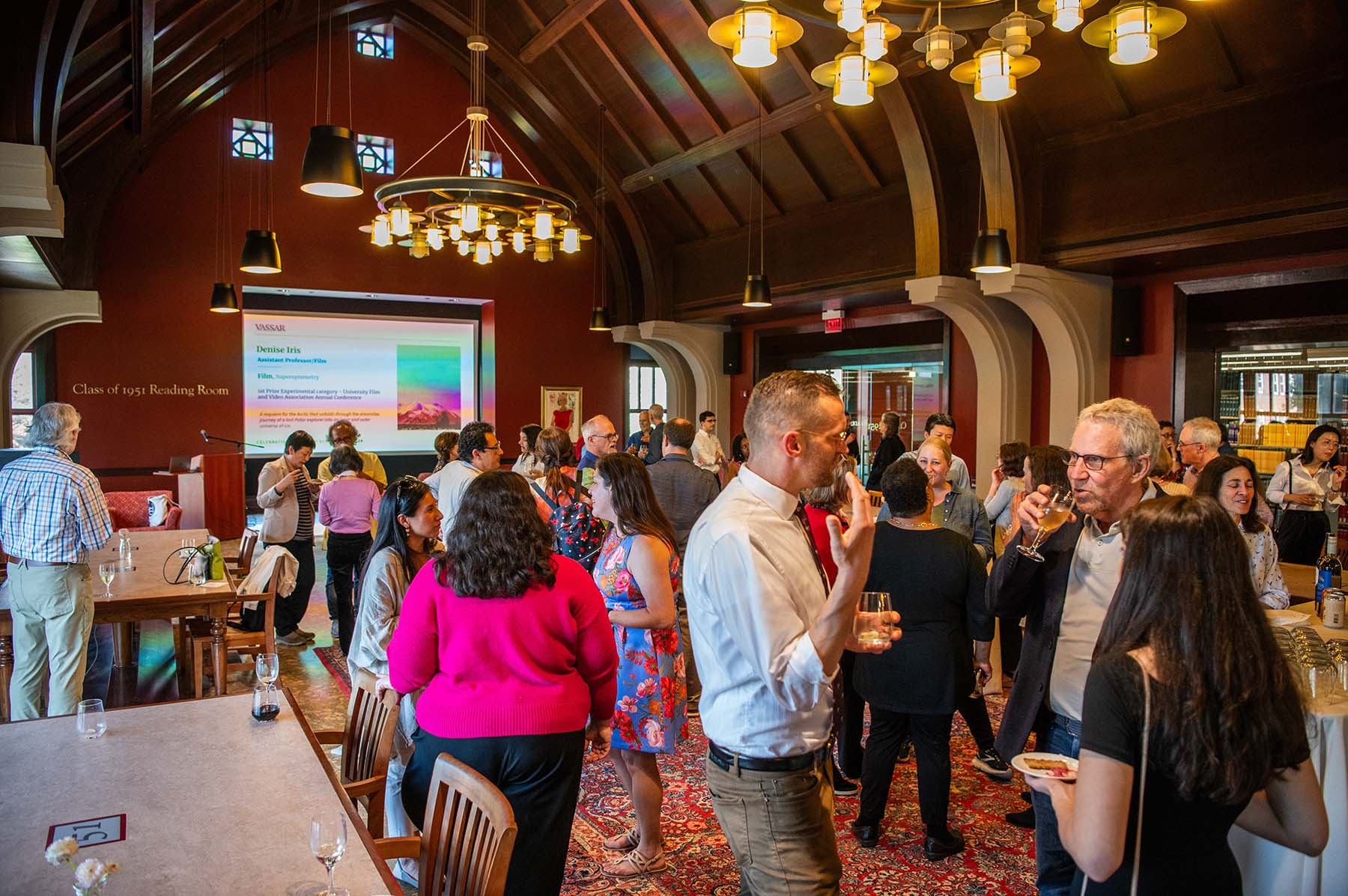
As slides describing the work of 53 faculty members scrolled on a large screen, Dean of Faculty William Hoynes led a champagne toast to those assembled in the Class of 1951 Reading Room. “Our faculty are a remarkable group of scholars and artists, writers and performers, scientists and humanists,” Hoynes said. “So many of you are engaged in wonderfully innovative scholarly and creative work, but outside of your specific networks, many on campus are not aware of all of this great work.”
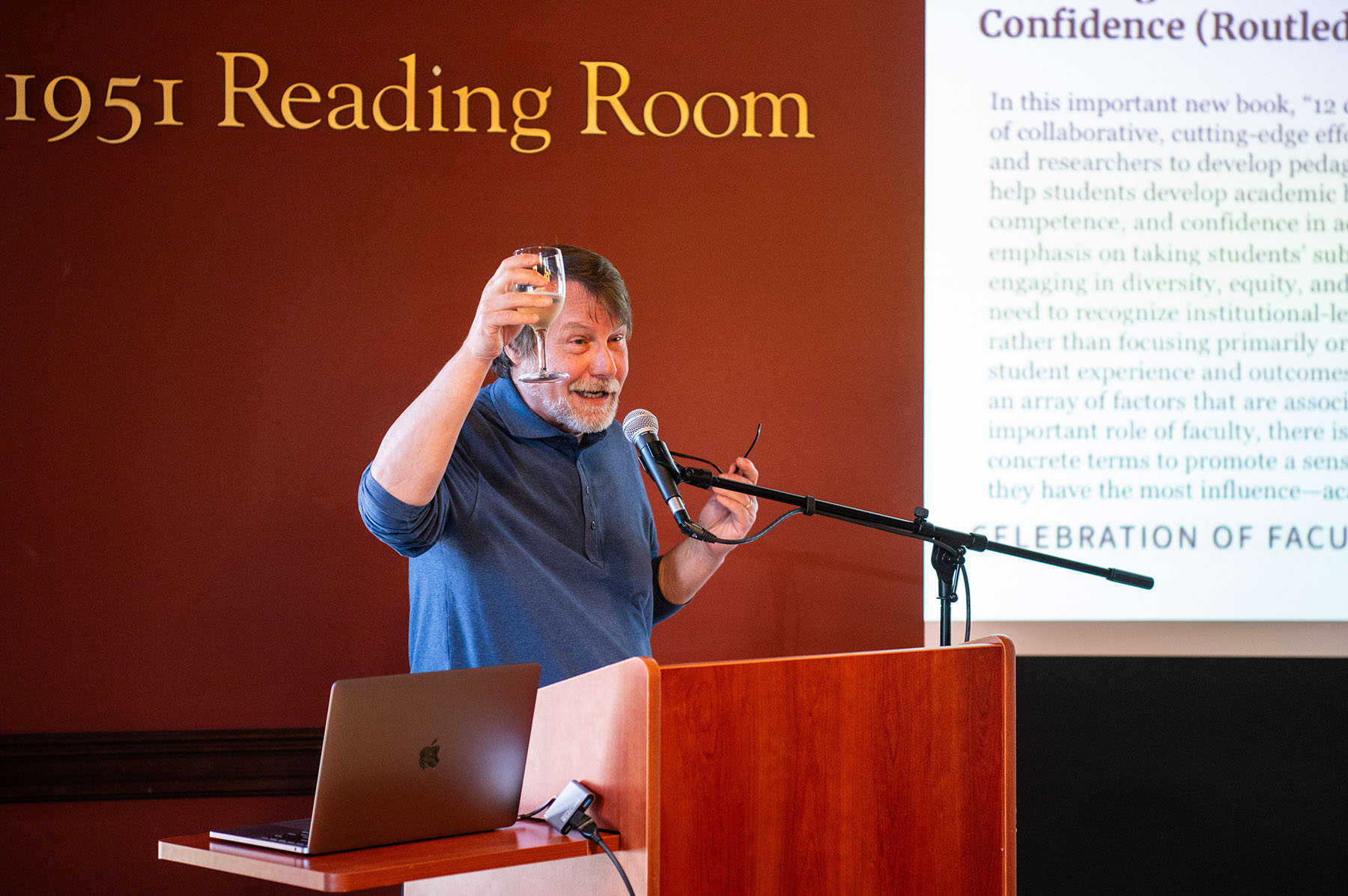
Hoynes recalled that when he first came to Vassar more than 30 years ago, a colleague had advised him not to share his published work with others in the faculty, suggesting that such talk would be perceived as unseemly self-promotion. “I think I took that advice too literally and have rarely shared my work, even with close friends and colleagues,” he said. “Frankly, I regret that, and I have been absolutely delighted, indeed inspired, when colleagues have shared their work with me.”
Three members of the faculty who attended the event reflected the breadth of topics they and their colleagues have examined in their scholarly work.
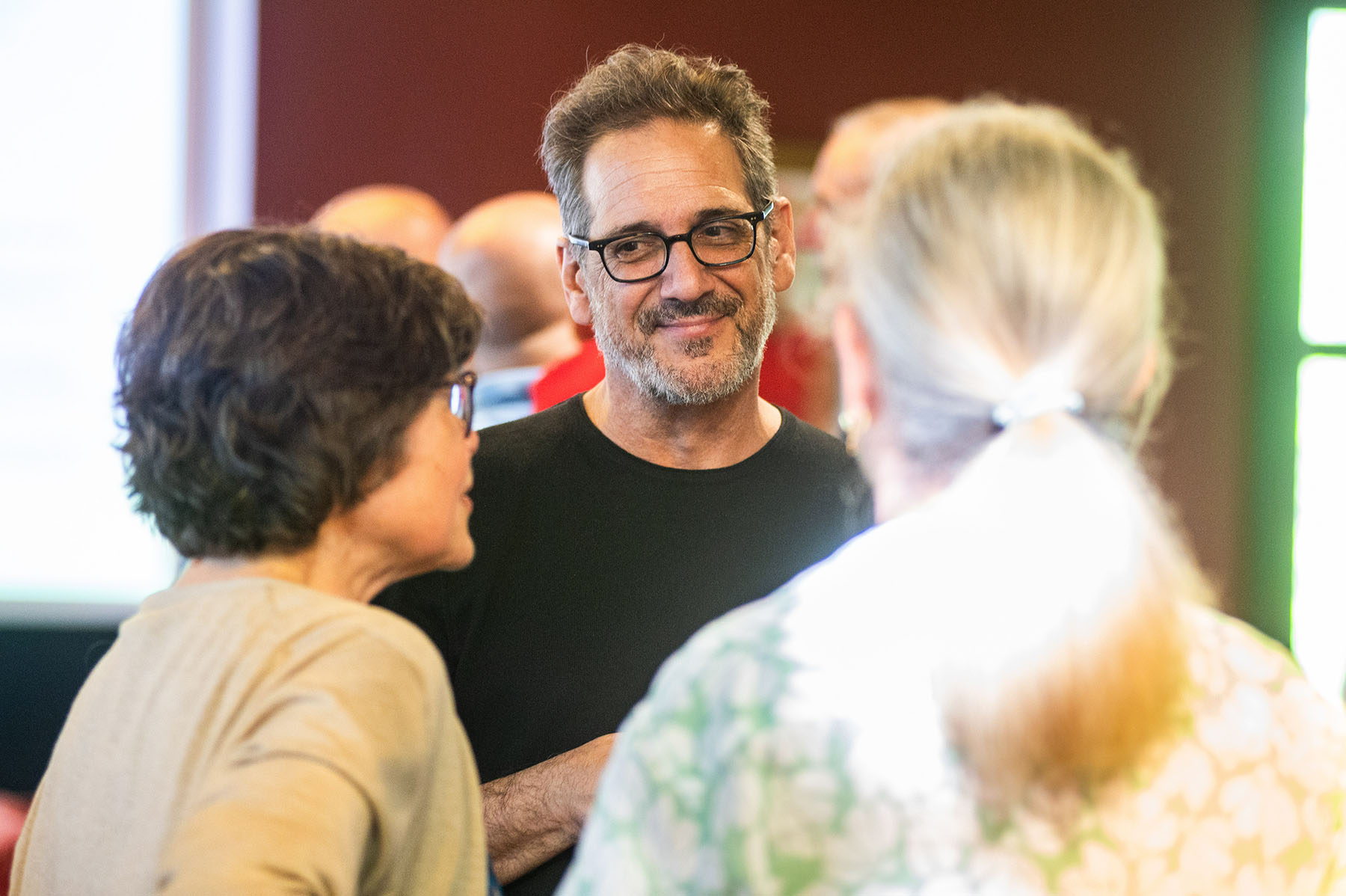
Associate Professor and Chair of Music Justin Patch and Professor of Anthropology Thomas Porcello co-authored a textbook titled Re-Making Sound: An Experiential Approach to Sound Studies, which examines six distinctly different types of sound and provides exercises for the students and their professors to explore each one.
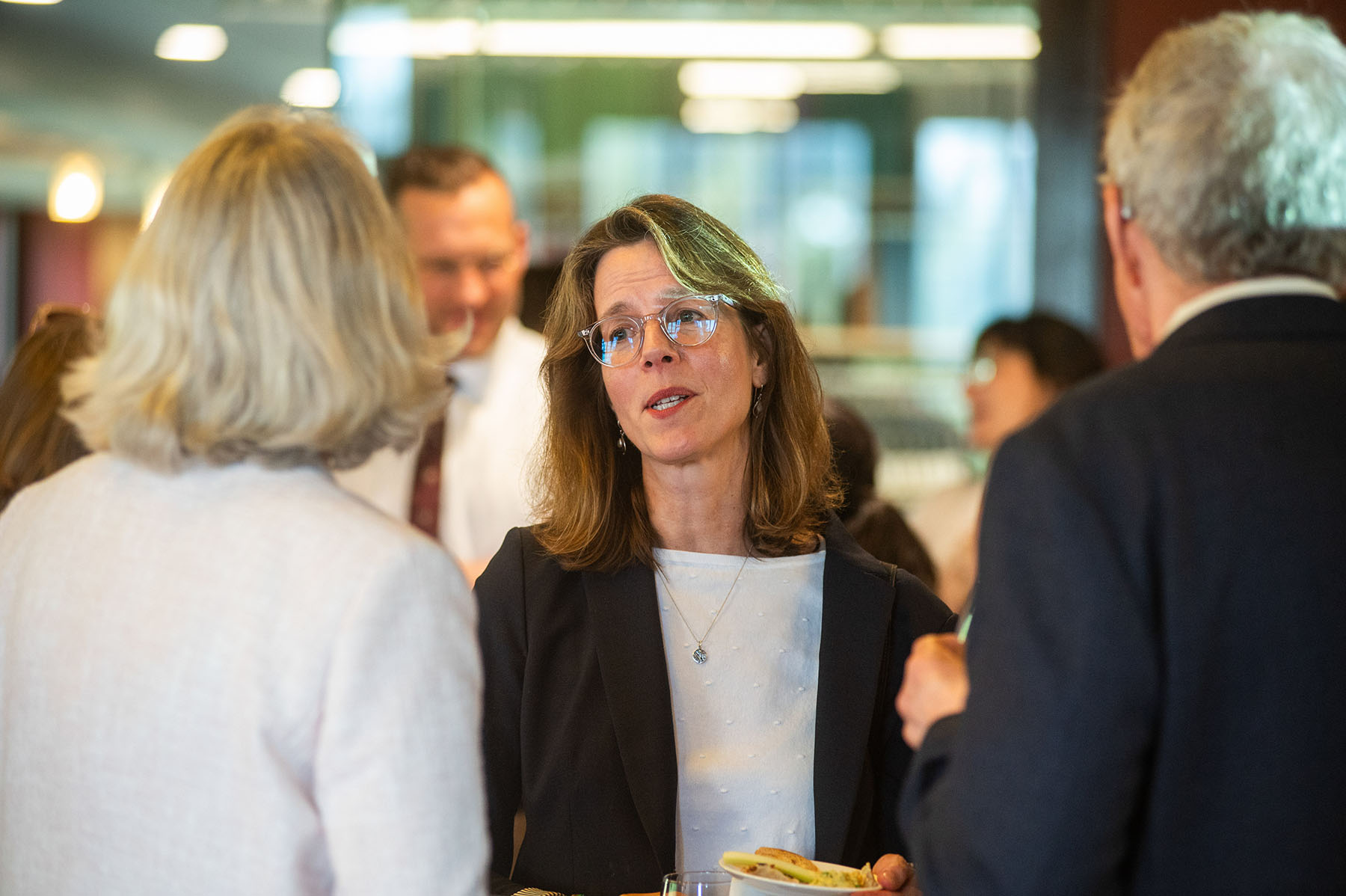
Professor of History Nancy Bisaha recently published a book titled Christians to Europeans: Pope Pius II and the Concept of Modern European History. Bisaha said Pope Pius II, who led the Catholic Church from 1458 to 1464, was one of the first to frame the countries of Europe as a distinct part of the world. Her research into the Pope’s writings had required her to utilize her knowledge of Latin, which she had first studied as an undergraduate at Rutgers University more than 30 years ago.
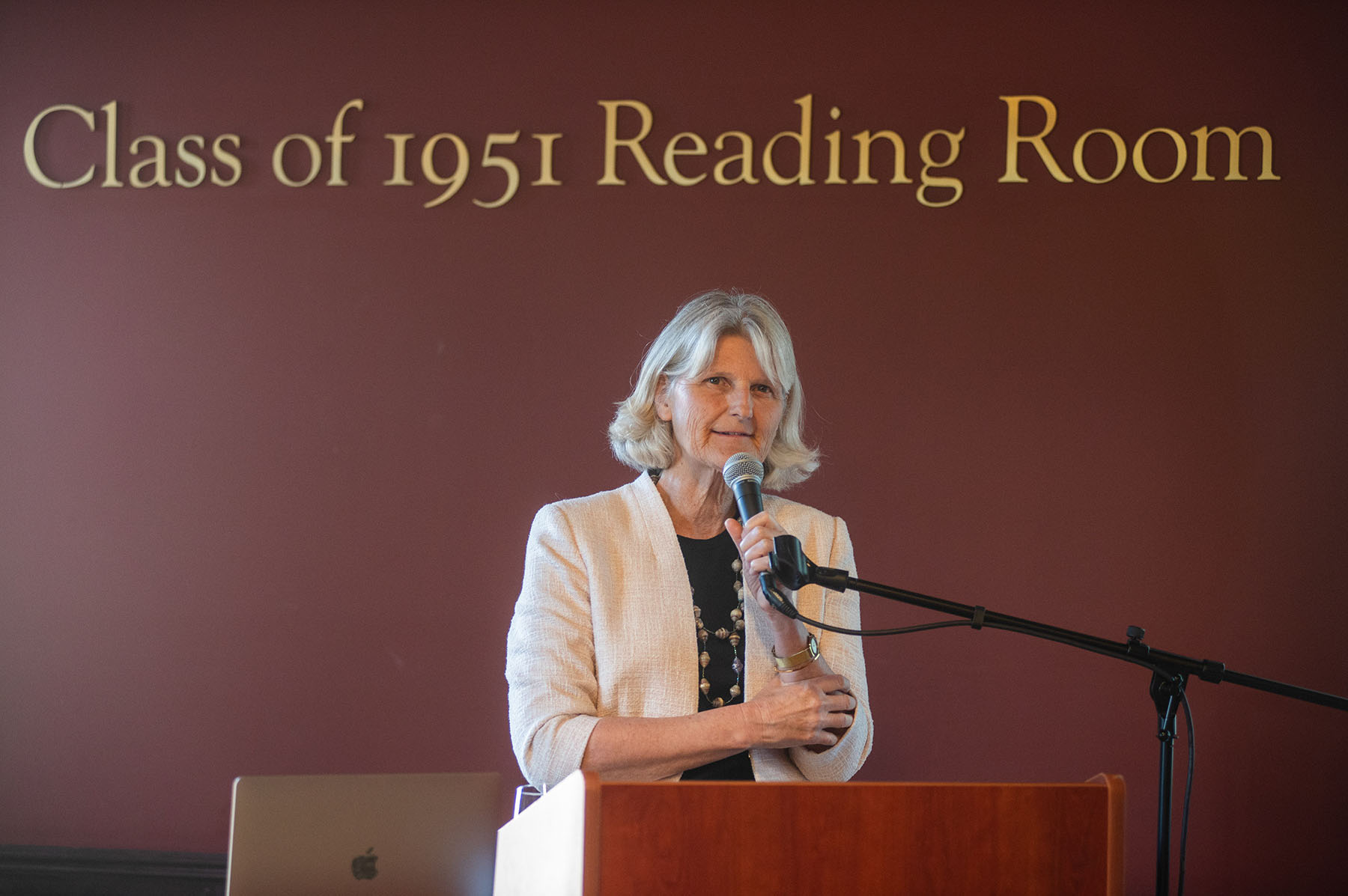
In her remarks at the start of the event, President Elizabeth H. Bradley said one of the favorite parts of her job has been reading the books and articles members of the faculty have published. “It’s important to have the time and space to use our intellect, and I get a liberal arts degree every year reading your work,” Bradley said.